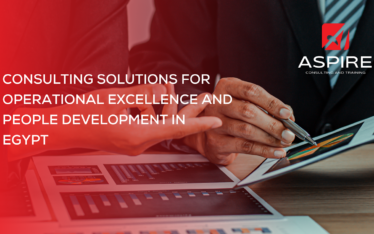Daniel Goleman, author of Emotional Intelligence: Why It Can Matter More Than IQ, states that emotional intelligence is essential for successful management just as much as high IQ is. Emotional intelligence consists of self-awareness, self-regulation, social skills, empathy, and motivation. All of these skills increase the likelihood of being in a healthy work environment rather than a negative one. You don’t have to be a manager or a boss to be a leader. You can still create a healthy work environment by having traits of a leader within your working space. Although emotional intelligence is inherited, it is also a skill that can be learned and improved. To learn how to be emotionally intelligent, one needs to learn more about the five concepts that it consists of and to be aware of how they can be developed.
-
Self-Awareness
Self-awareness is the ability to understand one’s emotions and personality. Being aware of oneself means being conscious of strengths and weaknesses, feelings, motives, and behaviors. There is an openness to develop oneself because there’s an awareness of the areas that need development. A self-aware leader reflects on past decisions, and is open to criticism for the sake of better outcomes. This increases communication within the organization and enhances job performance. On the other hand, not being self-aware will lead to blame culture since one will be too busy pointing a finger the other way rather than holding themselves accountable.
-
Self-Regulation
The ability to regulate one’s mood, behavior, feelings, and reactions. A good leader separates between personal and professional business. There is a recognition of emotions but also a strong need to manage it. People who are unable to manage their emotions end up lashing out on others. If a leader is incapable of controlling his/her own impulses, this can create tension in the workplace. It can also lead to irrational decision making and risk taking.
-
Social Skills
Interpersonal intelligence presents itself in the form of social skills and an ability to maintain positive relationships with others. A good leader communicates expectations clearly, solves conflicts within the organization, nurtures the bond between employees by creating a sense of community, and handles clients with ease.
-
Empathy
An empathetic leader walks a mile in his employees’ shoes. The leader can imagine themselves in the position of others, and for that reason they are attentive to the needs of those around them. They don’t view their coworkers as machines, but as humans who are prone to experiencing burnout. They also take into account that employees have lives outside of their job, which prompts them to set realistic expectations.
-
Motivation
According to Daniel Goleman, motivation is “our personal drive to improve and achieve, commitment to our goals, initiative, or readiness to act on opportunities, as well as optimism, and resilience.” Having a drive to achieve and being committed to goals that you have set, is a sign of being emotionally intelligent. A motivated individual in the workplace is an asset to an organization because they encourage the rest of the team to have the same mentality.
How to Develop Emotional Intelligence
-
Ask people you trust (and take the critique well)
You can always ask people you trust for what they think. You can ask for feedback from them regarding aspects in your personality, and to take it into consideration. People will always view you from a lens of their own personality and experiences, so it’s important to take things with a grain of salt. You should still ask for feedback and analyze the truth behind it, and decide to dismiss it or change it.
-
Look at how you react to stressful situations
Are you able to manage your emotions when things don’t go your way? Are you able to calm yourself down when there’s an inconvenience at work? Do you tend to point the finger the other way when something doesn’t go according to plan? It’s important to be able to pinpoint our feelings and develop habits that calm us down. This can also prevent us from projecting negative feelings onto others.
-
Hold yourself accountable
Learn to take responsibility for your actions. Being emotionally intelligent means that you think about your actions and how they will impact others. Reflect on your past decisions, and if you wronged someone else then own up to your mistakes.
-
Choose to listen
Listening to others, rather than waiting for our turn to speak, enhances our relationships with others and strengthens our social skills.
-
Be assertive
It’s important to learn the difference between being assertive and being aggressive. There are two extremes, passivity and aggressiveness, and assertiveness lies in the middle. Being passive would mean that you tend to be apologetic, dishonest, and indirect. On the other hand, being aggressive would mean that you tend to be inappropriately honest, and attacking others. Assertiveness, which lies in the middle, is the ability to be upfront and expressive in a healthy way.
Learning how to be emotionally intelligent changes the quality of our relationships, both in our personal and professional lives. It also makes room for us to be impactful individuals, as we develop ourselves and also learn how to feel for others. Developing good social skills also gives us the opportunity to make the most out of the connections we build with others, which will ultimately change our dynamics with others at work.
Reflection Questions
- Do I find it hard to label my feelings?
- How do I manage my emotions? Do I lash out on others?
- Do I communicate my needs, or do I tend to bottle my feelings up?
- Am I intrinsically motivated or extrinsically motivated?





